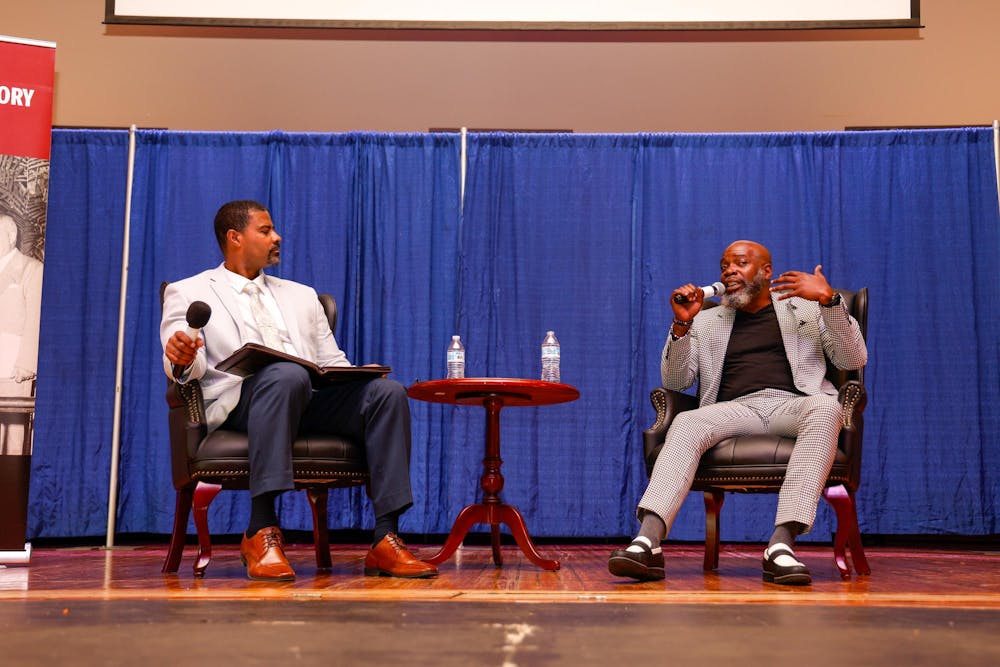Award-winning journalist and author Michael Harriot spoke about his novel "Black AF History: The Un-Whitewashed Story of America" at Chapelle Hall at Allen University. Damion Waymer, director of the School of Journalism and Mass Communications at USC, joined him in presenting.
The event was hosted from 6:30 p.m. to 8:00 p.m. as part of the Media and Civil Rights History Symposium. The building was filled with people in professional attire waiting to hear what Harriot had to say. Harriot's words and lighthearted delivery resulted in many laughs and applause from the crowd.
Throughout their conversation, Harriot addressed topics in his book such as Black historic preservation, important figures in Black history and encouraging aspiring journalists to have integrity and to tell the truth directly through their work.
Although racism and systematic oppression can be a difficult topic to address, Harriot made it very lighthearted for people to hear about, often referring to many childhood experiences, USC doctoral student Angela Hill said.
"One thing that I really appreciate about the way he presents history is he does make it relatable," Hill said.
Harriot did so by creating the "Greatest Oppressors of All Time" bracket. Following a March Madness bracket format, the exercise used 64 historical figures and allowed the audience to vote on the most powerful oppressor.
This made it an enjoyable learning experience, Harriot said.
"I'm always looking for an entryway to get people to think about things deeper than just reading the words and regurgitating the knowledge," Harriot said.

Columbia resident Michael Hale gets his copy of "Black AF History: The Un-Whitewashed Story of America" signed by the author Michael Harriot at "An Evening with Michael Harriot" at Chappelle Hall on March 27, 2025. Harriot is known for his work with The Grio and other publications, lending commentary on race, history and politics.
Harriot also addressed Black history within South Carolina.
He said the people of South Carolina paved a way for Black people to receive higher education and advance within society.
"If there is such a thing as Black America, then South Carolina is its capital," Harriot said. "Everything that is Black people originated in South Carolina."
Lastly, Harriot spoke to future journalists about their obligation to speak the truth.
"If you provide people with the truth, it is a rare commodity," Harriot said. "It is bigger than celebrity, it's more valuable than all of the Twitter followers you can ever amass, because at some point, they (the people) are going to need you."
USC graduate student Sydney Hill said the same about choosing the truth that individuals decide to tell and uphold.
"You either choose the right side or the wrong side," Hill said. "There's no in between for anything."
On March 28, Harriot will be the keynote speaker at a luncheon held as part of the symposium at the School of Journalism and Mass Communications on USC's campus.

